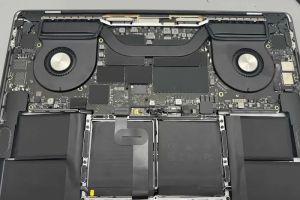How Much Should Computer Repair Cost? A Complete Guide to Pricing and Services
As someone who has dealt with various computer issues over the years, I know how frustrating it can be to have a malfunctioning laptop or desktop. Whether it’s a slow system, broken screen, or a virus that you can’t shake off, the first question that comes to mind is always: “How much is this going to cost me?” The price of computer repairs can vary significantly depending on a variety of factors, and understanding these factors can help you make informed decisions and avoid overpaying.
When I first faced a major issue with my laptop, I was surprised by the wide range of quotes I received from different repair shops. Some offered low-cost fixes, while others quoted steep prices. Over time, I learned that the cost of computer repairs isn’t set in stone, but instead depends on several key factors. In this article, I’ll walk you through what affects computer repair costs, share my own experiences, and provide some tips to help you navigate the process without breaking the bank.
- Factors Affecting Computer Repair Costs
- Average Cost of Common Computer Repairs
- How to Find Affordable Computer Repair Services
- DIY Computer Repair: When to DIY and When to Call the Pros
- Preventative Measures to Save Money on Future Repairs
1. Factors Affecting Computer Repair Costs
When it comes to computer repairs, the cost can vary based on a number of factors. In my experience, the complexity of the issue and the type of repair required play a huge role in determining the final price. Here are the most common factors that can impact the cost of your computer repair:
- Type of Repair: Simple issues, such as a software glitch or a keyboard malfunction, tend to cost less to fix than hardware problems like a broken screen or a motherboard issue. For example, fixing a cracked laptop screen can cost anywhere from $150 to $400, depending on the model.
- Brand and Model: The brand and model of your computer also affect the cost of repairs. Popular brands like Apple or Dell may have higher repair costs due to specialized parts or services. Apple, for example, is known for charging premium prices for repairs.
- Location: Repair costs can vary depending on your location. In larger cities, repair shops may charge more due to higher rent and overhead costs. If you’re in a more rural area, the pricing may be more affordable.
- Warranty and Support: If your computer is still under warranty, the cost of repairs might be minimal or even free. On the other hand, out-of-warranty repairs will typically cost more. It’s always a good idea to check your warranty coverage before heading to a repair shop.
- Urgency of the Repair: If you need a quick turnaround, you may be charged an expedited service fee. I’ve had times when I needed repairs urgently, and the rush fee added anywhere from $20 to $50 to the total cost.
In short, the more complex and urgent the repair, the higher the cost. It's always important to ask the technician for an estimate and understand the breakdown of costs before proceeding with the repair.

Action Computers Inc. -- Denver Location
2890 S Colorado Blvd F, Denver, CO 80222, USA
2. Average Cost of Common Computer Repairs
As I’ve experienced firsthand, knowing the average cost of common computer repairs can help you avoid being overcharged. Here’s a rough guide to what you can expect to pay for some typical computer repairs:
- Screen Repair: Cracked or damaged screens are one of the most common repairs. The cost for a laptop screen replacement can range from $150 to $400, depending on the brand and size of the screen. For desktop monitors, repairs typically cost between $100 and $300.
- Hard Drive Replacement: If your hard drive fails, you may need to replace it. Replacing a hard drive can cost anywhere from $100 to $250, depending on the storage capacity and whether you opt for a traditional hard disk drive (HDD) or a solid-state drive (SSD).
- Battery Replacement: If your laptop battery is no longer holding a charge, replacing it can cost between $50 and $150. The price depends on the laptop model and battery type.
- Virus Removal: If your computer is infected with malware or a virus, it can usually be cleaned up for $50 to $150. Some shops charge extra for more intensive virus removal, especially if data recovery is needed.
- Keyboard Repair or Replacement: Keyboards that have stopped working can often be repaired or replaced for $50 to $150, depending on the laptop’s make and model.
These prices are averages, and it’s always worth getting a couple of quotes before committing to any repair. While some smaller issues can be fixed affordably, major repairs, especially for high-end models, can quickly add up.

Fix It Computer Repair
2638 Geranium Ln, Fort Collins, CO 80525, USA
3. How to Find Affordable Computer Repair Services
Finding affordable computer repair services can be a challenge, especially if you’re on a budget. After shopping around for repairs in my own experience, I’ve learned a few tricks for finding the best deal without compromising on quality:
- Check for Local Repair Shops: Often, local repair shops offer more affordable rates compared to large chain stores or brand-specific service centers. It’s worth checking online reviews or asking friends for recommendations to find reputable local shops.
- Get Multiple Quotes: Always ask for a quote from multiple repair shops before deciding where to go. Prices can vary, and some shops offer discounts for certain services or for first-time customers.
- Look for Coupons or Discounts: Some repair shops offer coupons or discounts for services, especially during holidays or special promotions. Keep an eye out for deals that might reduce the overall cost of your repair.
- DIY Repair Options: If you’re tech-savvy or willing to learn, many simple repairs can be done at home. For example, replacing a laptop battery or upgrading RAM is something I’ve done myself, saving me significant money.
By shopping around and considering different repair options, I was able to find affordable repair services without sacrificing the quality of the work. It’s important to prioritize the expertise of the technician as well as the price when making your decision.
4. DIY Computer Repair: When to DIY and When to Call the Pros
As someone who enjoys fixing things myself, I’ve attempted several DIY computer repairs. While some tasks can be done with a little guidance, other repairs are best left to professionals. Here's what I've learned about when to tackle the job yourself and when to seek expert help:
- Simple Repairs: If you’re comfortable opening up your computer and have the right tools, some repairs—like upgrading RAM or replacing a battery—can be done at home. There are plenty of online tutorials that can guide you through these basic fixes.
- Complex Repairs: Major issues like motherboard replacement, screen repairs, or data recovery are best left to the professionals. These repairs often require specialized knowledge and equipment, and trying to do them yourself can lead to further damage.
- Warranty and Insurance: If your computer is still under warranty or covered by insurance, I recommend contacting the manufacturer or insurance provider first. DIY repairs could void your warranty, so it’s important to check the terms before attempting any repairs.
DIY repairs can save you money, but it’s crucial to know your limits. If you’re unsure about a repair, it’s always safer to call in an expert.
5. Preventative Measures to Save Money on Future Repairs
Over the years, I’ve learned that taking a few simple steps to care for my computer can save me a lot of money in the long run. Preventative maintenance can help avoid costly repairs down the road:
- Regular Software Updates: Keeping your software up to date is essential to prevent security vulnerabilities and bugs that could lead to bigger issues.
- Clean Your Computer Regularly: Dust buildup can affect cooling and cause overheating, leading to potential damage. Regularly cleaning your computer, especially the vents and keyboard, can help keep it running smoothly.
- Use Antivirus Software: Installing and regularly updating antivirus software can help protect your computer from malware, viruses, and other malicious software that can damage your system.
By taking these steps, I’ve been able to avoid many common repairs and keep my computer running smoothly for longer. Preventative care can extend the life of your computer and reduce the need for expensive repairs.





























